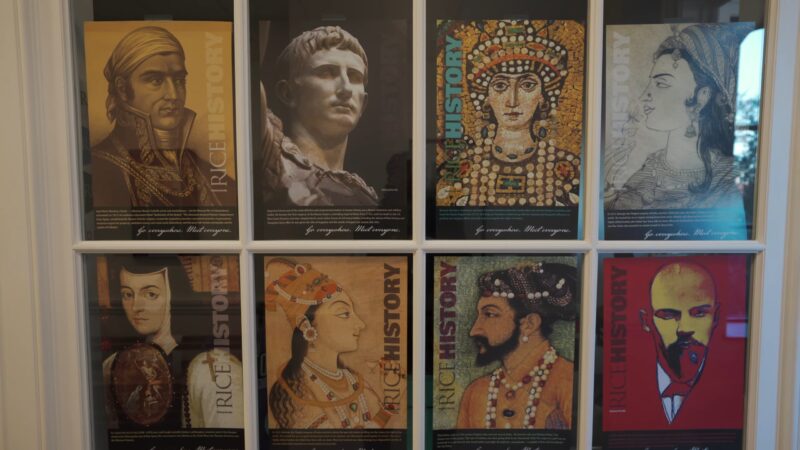The humanities, encompassing fields like art, literature, philosophy, and history, are often seen as less practical compared to scientific disciplines. However, their importance in shaping our society, culture, and individual perspectives is immense.
This blog post explores seven compelling reasons why the humanities are crucial for personal growth, societal development, and professional success.
Key Takeaways
- The humanities enhance critical thinking and communication skills, essential for decision-making and effective articulation of complex ideas in various professional fields.
- They encourage exploration of life’s profound questions, fostering a deeper understanding of the human experience and connecting us to past generations and cultures.
- Studying the humanities deepens appreciation for art, language, and culture, broadening perspectives and fostering empathy and respect for different ways of life.
- These studies provide historical context to artistic and cultural expressions, helping to understand the motivations behind various works and their relevance to contemporary society.
- The humanities offer avenues for exploring and developing personal interests in ideas, art, language, and culture, leading to personal fulfillment and enriched life experiences.
- A background in these studies prepares individuals for diverse career paths, equipping them with critical thinking, communication, and problem-solving skills highly valued in various industries.
- They instill a sense of social responsibility and community engagement, equipping individuals to contribute positively to societal development and address complex social issues.
1. They Cultivate Critical Thinking and Communication

These studies focus on critical analysis and nuanced understanding. Engaging with complex texts and ideas, students in the humanities learn to dissect arguments, identify underlying assumptions, and challenge conventional wisdom. This skill is not only academically beneficial but also essential in everyday decision-making and problem-solving.
Furthermore, humanities education improves communication skills, enabling individuals to articulate complex ideas effectively, a vital asset in any professional field. These skills are crucial in a world where the ability to convey ideas clearly and persuasively can make a significant difference in various contexts, from boardrooms to public forums.
2. Encouraging the Exploration of Big Questions

The humanities encourage us to engage with some of life’s most profound questions: What makes a meaningful life? What constitutes goodness? These timeless queries connect us to past generations and cultures, offering a deeper understanding of the human experience.
These studies provide a unique space for intellectual exploration, allowing us to analyze philosophical debates and ethical dilemmas that have puzzled thinkers for centuries. This exploration not only enriches our intellectual life but also fosters a sense of connection with the broader human journey, bridging gaps across time and cultures.
3. Deepening Appreciation for Art, Language, and Culture

Through the humanities, we gain exposure to a kaleidoscope of human expression in art, literature, and cultural practices from around the world. This exposure enriches our understanding and appreciation of the world’s varied human experiences, broadening our perspective and fostering empathy and respect for different cultures and ways of life.
The study of different languages, for instance, is not just about learning to communicate in another tongue; it’s about immersing oneself in a different way of thinking and viewing the world.
Similarly, the exploration of global literature and art opens windows to diverse emotional and cultural landscapes, enhancing our ability to appreciate and engage with the richness and complexity of human culture.
4. Providing Historical Context

Understanding the historical context of artistic and cultural expressions is crucial in comprehending the motivations and meanings behind various works. This insight is essential in appreciating the relevance of these works to contemporary society.
By studying the humanities, we learn how historical events, social norms, and cultural movements have shaped artistic and intellectual expressions throughout time.
This understanding deepens our appreciation of art and culture and helps us recognize recurring themes and patterns in history, enabling us to better understand current events and anticipate future trends.
5. Fostering Personal Interests and Passions
These studies offer a space for individuals to explore and develop their interests in ideas, art, language, and culture. This exploration can lead to a more fulfilling personal and professional life. It encourages lifelong learning and intellectual curiosity, qualities that are invaluable in an ever-changing world.
Whether it’s through the study of classical literature, the exploration of philosophical ideas, or the appreciation of fine arts, the humanities provide avenues for personal growth and self-expression. They allow us to discover and cultivate our passions, leading to a more enriched and meaningful life.
6. Preparing for Diverse Careers
A background in the humanities equips individuals with versatile skills applicable in various fields, including education, journalism, law, and business. The critical thinking, communication, and problem-solving skills gained are highly valued in the job market.
Humanities graduates are often praised for their ability to think outside the box, adapt to new situations, and empathize with diverse viewpoints – skills that are increasingly important in a globalized world.
Moreover, the ability to analyze complex texts and articulate ideas clearly is a boon in any professional setting, from crafting compelling narratives in marketing to developing persuasive arguments in law.
7. Contributing to Community and Social Development
These studies instill a sense of social responsibility and community engagement. Graduates often find themselves in roles where they can positively impact society, whether in education, community service, or political science.
The study of humanities encourages a deep understanding of social issues and cultural dynamics, equipping individuals to contribute thoughtfully to societal development.
It encourages a compassionate approach to problem-solving and a commitment to ethical practices, both of which are crucial in addressing the challenges faced by communities around the world.
FAQs
Can studying humanities improve emotional intelligence?
Yes, by engaging with diverse perspectives in literature, art, and history, students develop greater empathy and understanding of human emotions and motivations. This improved emotional intelligence is valuable in both personal relationships and professional environments.
How do the humanities influence technological innovation?
These studies play a crucial role in technological innovation by providing ethical, cultural, and historical perspectives. Innovators with a background in humanities can create technology that is more attuned to human needs and ethical considerations, ensuring that technological advancements benefit society as a whole.
Are there any unexpected career paths for humanities graduates?
Absolutely! Beyond the traditional paths, humanities graduates have found success in tech industries, digital marketing, user experience design, and even artificial intelligence sectors. Their skills in critical thinking, communication, and understanding of human behavior are highly valued in these fields.
How does studying humanities contribute to a more inclusive society?
These studies foster inclusivity by teaching students about diverse cultures, histories, and perspectives. This education promotes understanding and respect for differences, encouraging individuals to create more inclusive communities and workplaces.
Can humanities help in understanding and solving environmental issues?
Yes, they provide essential insights into environmental issues by exploring the cultural, ethical, and historical dimensions of human interaction with the environment. This understanding is key to developing sustainable solutions that are considerate of both human and ecological needs.
Is there a connection between humanities and mental health?
There is a significant connection. These studies can play a therapeutic role in mental health, offering outlets for expression and reflection through art, literature, and music. Additionally, they can provide deeper insights into human psychology and the social factors that influence mental health.
Final Thoughts
Humanities teach us important skills to handle life’s challenges and to make a positive impact in society. In a world focused on technology and science, these studies keep us connected to our shared human experiences and teach us the value of creativity, understanding others, and thinking deeply.
Facing global problems and complex human relationships, they give us important views and ideas, making them really important today.

